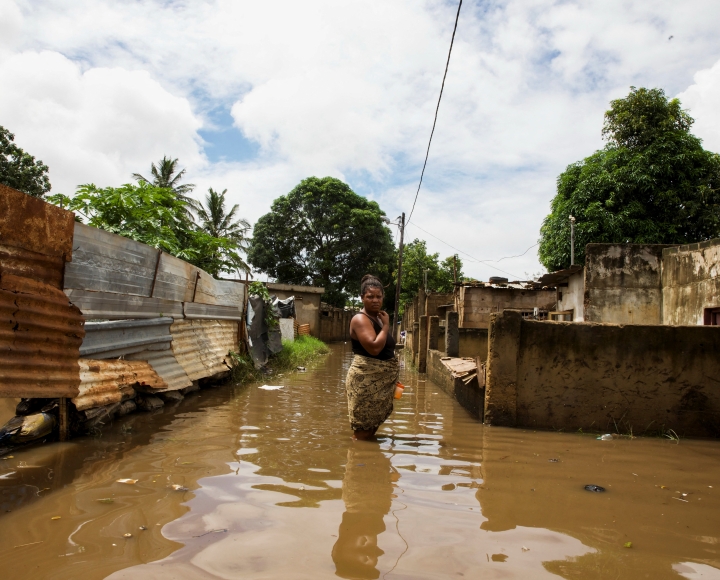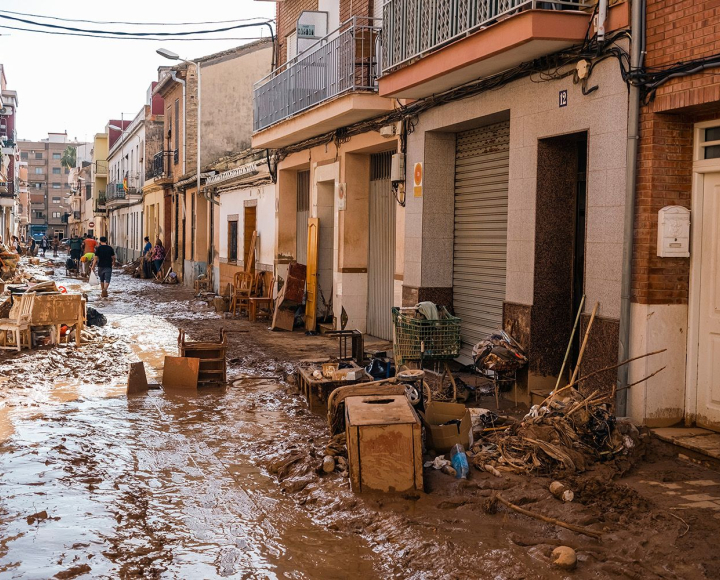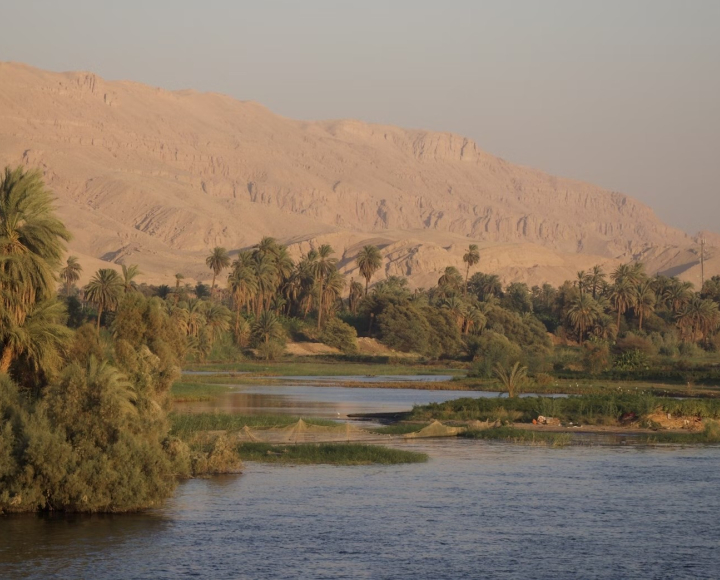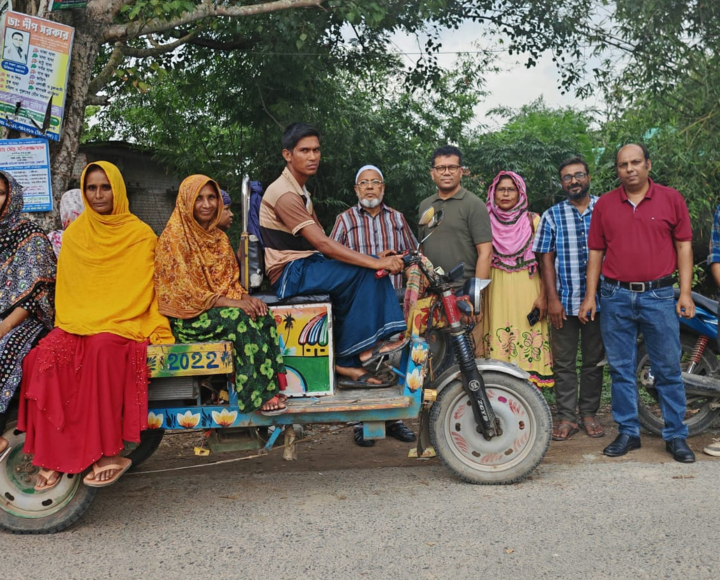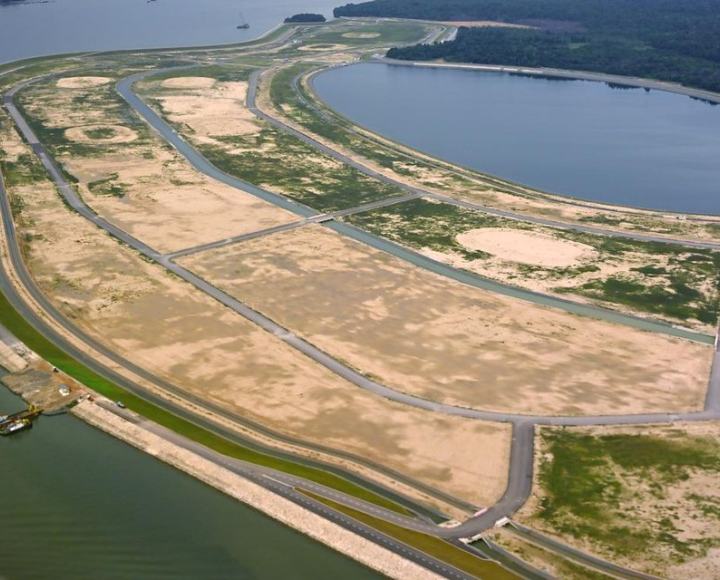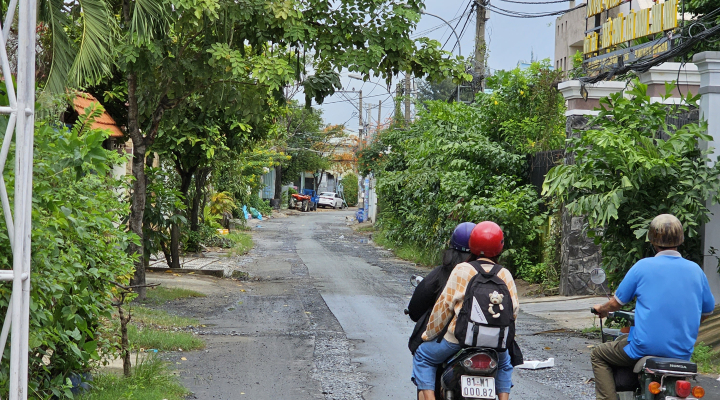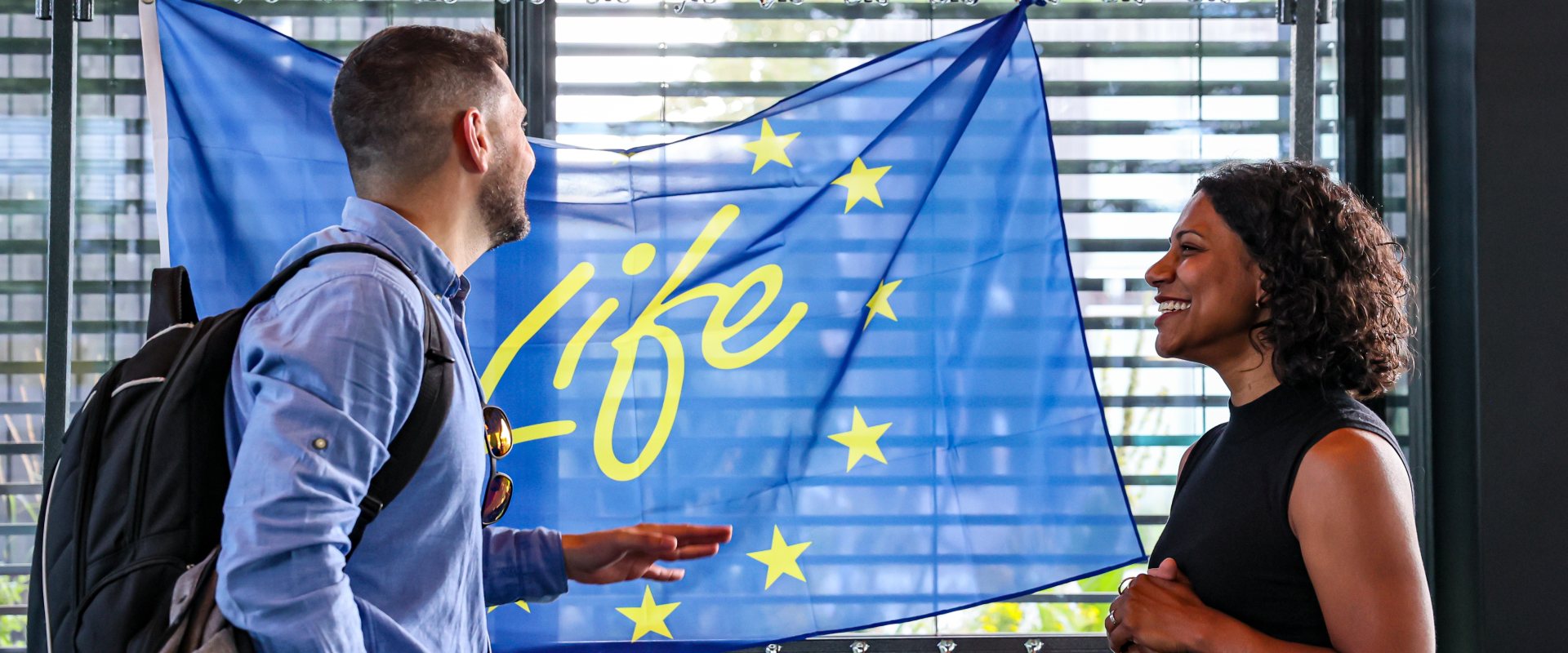
Dutch-Spanish consortium receives EUR 3 million EU subsidy to make cities climate resilient
A Dutch-Spanish consortium receives EUR 3,000,000 to scale up rainwater reuse in European cities. The project is funded by the EU funding instrument for the environment and climate action, LIFE.
Two demonstration sites will be realised in Alphen aan de Rijn (the Netherlands) and Madrid (Spain), in which approximately 10 million litres of drinking water can be saved every year.
Sustainable water supply
Drought and water shortages are increasingly common in Europe. Due to the changing climate we must adapt our cities. Urban areas will have to become greener to combat heat stress and we need to find solutions for extreme rainfall events. Meanwhile, as the population continues to grow exponentially, so does the paved surface area, increasing pressure on water systems and drinking water production in these areas. It is becoming increasingly clear that the centralised water system is reaching its limits. Creating alternative sources for a sustainable water supply is therefore crucial to sustain the quality of life in the city.
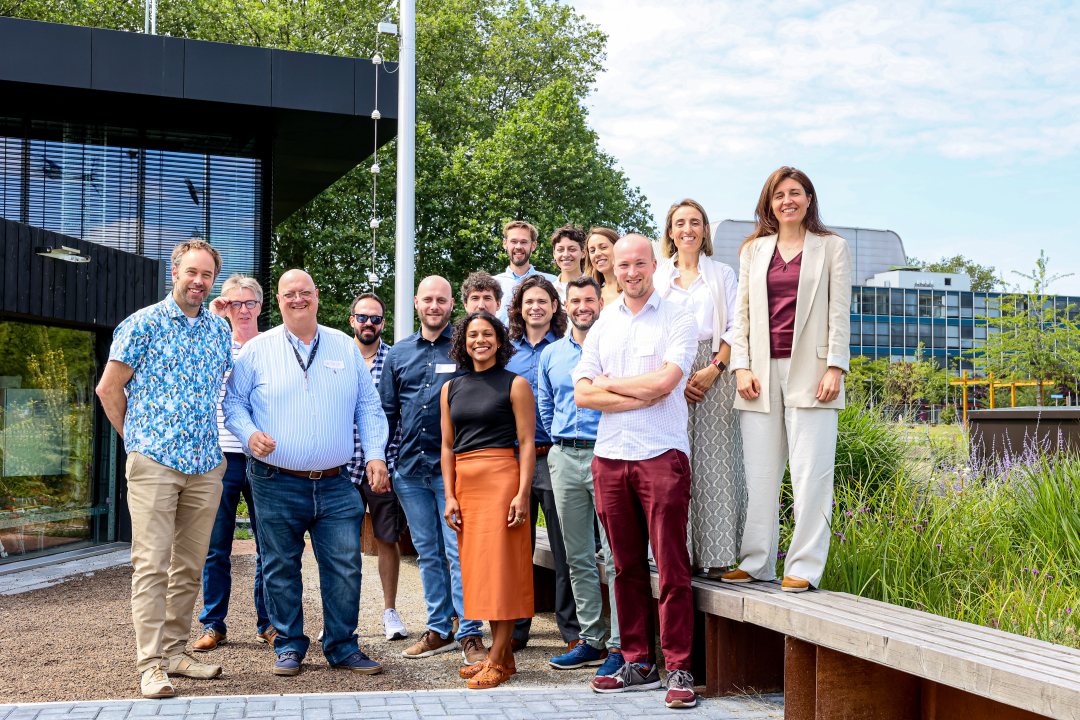

A Dutch-Spanish consortium
A consortium consisting of the Dutch startup FieldFactors, Delft University of Technology (TU Delft) and the municipality of Alphen aan den Rijn in collaboration with the Spanish partners Polytechnic University of Madrid (UPM), the public-private partnership Junta de Compensación Los Ahijones in Madrid and water technology company Apria Systems has started a EUR 5 million project to develop a scalable solution for rainwater reuse at the district and area level. The project has received a EUR 3 million grant from the EU LIFE programme and will be carried out from July 2023 to June 2027.
“We are on a mission to make cities green and climate resilient by reusing rainwater at scale. With this support I feel the acknowledgement that we are on the right track. I look forward to the results of the pilots and the technical development of our technology,” says Karina Peña, co-founder & CEO of FieldFactors.
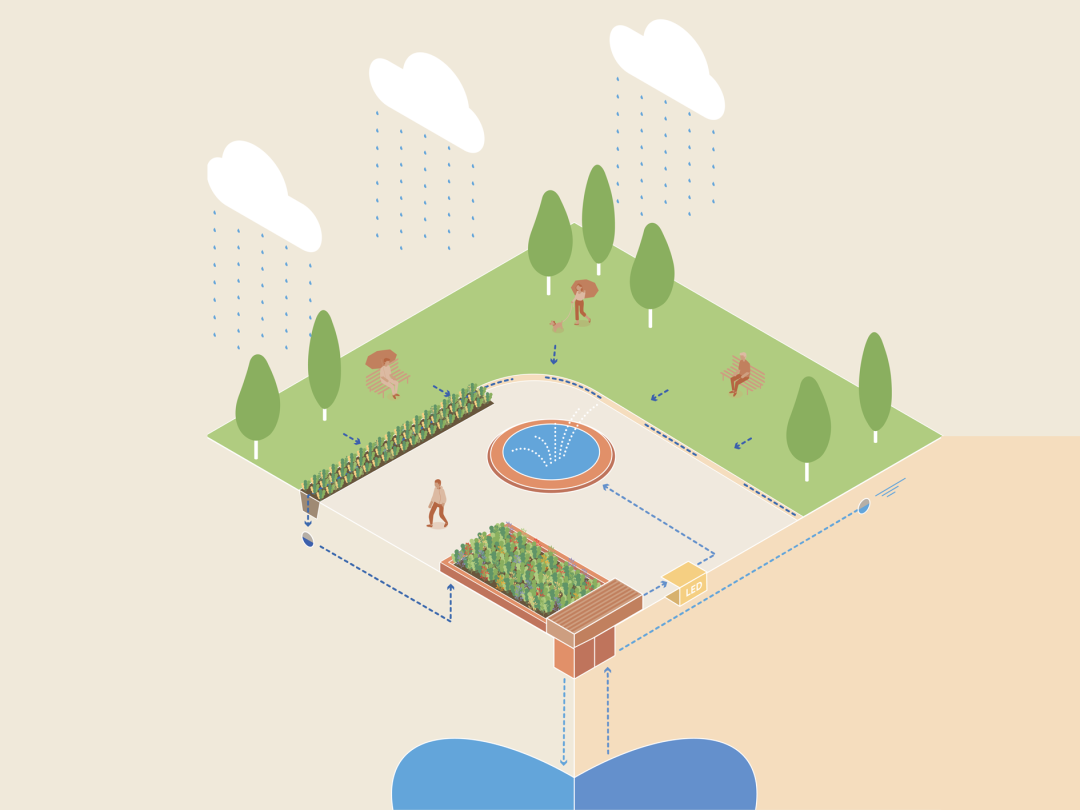

What makes this project so unique?
The Life GreenLED project offers a unique combination of sustainable technologies for valuable use of rainwater.
The consortium is developing a unique solution that allows cities to replace drinking water with locally collected rainwater; a scalable combination of FieldFactors' natural purification and underground storage technology with an energy-efficient UV-LED disinfection from Apria Systems. In this way, the innovative water companies offer an integrated and cost-efficient solution for the treatment, storage and reuse of large quantities of rainwater without endangering public health.
This innovative rainwater system will be implemented at two demonstration locations in the municipalities of Alphen aan den Rijn and Madrid. The demonstration sites will contribute to drinking water conservation and are part of climate proofing the built environment. The locations will continuously be monitored by TU Delft and UPM to check and evaluate the impact and effectiveness of the solution.
Circular water management
One of the biggest challenges for stormwater reuse in public spaces and buildings is the lack of cost-effective and environmentally friendly alternatives for proper water treatment. For instance, urban stormwater often contains hydrocarbons, heavy metals, microplastics and residues from litter, pathogens such as viruses and bacteria and a growing list of contaminants of emerging concern substances (CEC) are found. As a result, the reuse of rainwater is often seen as a potential risk to public health. To use it for drinking water, legal requirements must be met.
This is exactly what the project group is focusing on. The aim of the consortium is to implement a strategy for circular water management for the catchment and reuse of rainwater in neighborhood and area development. This focuses on removing contaminants so that the water is safe for use in close human contact applications, such as irrigation of green roofs, filling fountains and city ponds, swimming and playing, and for industrial processes.
The integration of the BlueBloqs technology for rainwater treatment and underground storage, supplemented with UVC-LED disinfection, will take the transition to water-aware and climate-adaptive building in the Netherlands, Spain and other European countries to a higher level.
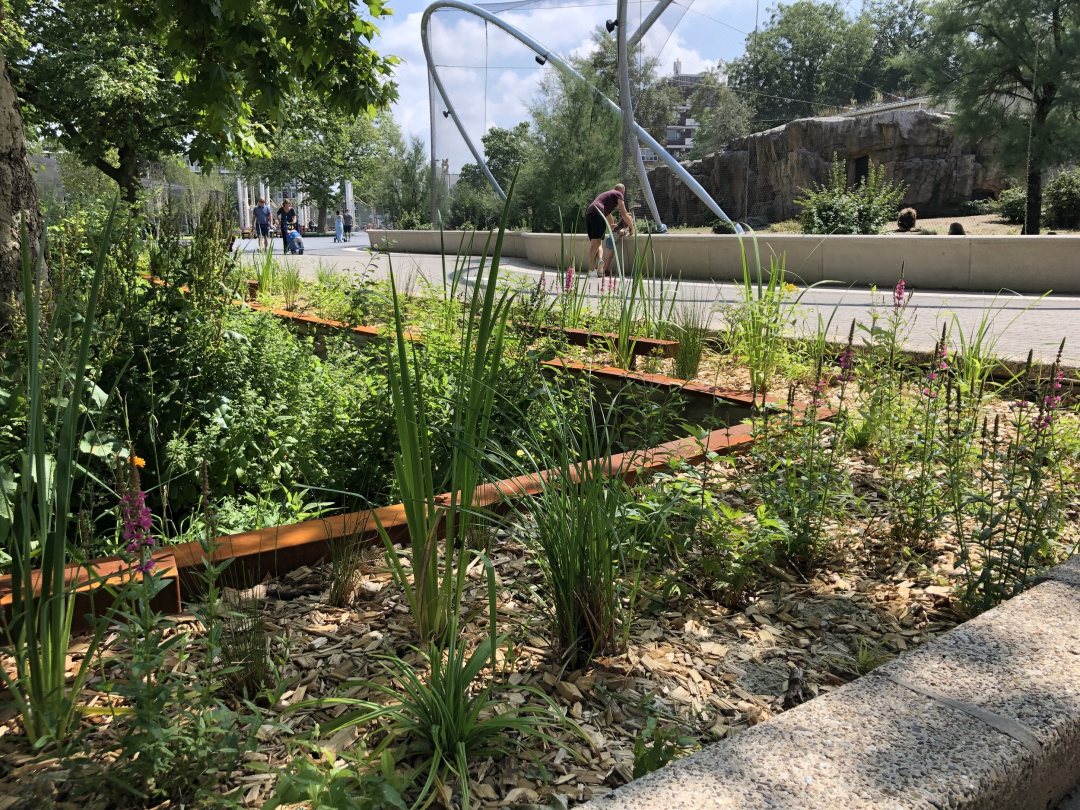

Dutch leading cities: Rotterdam, The Hague & Pijnacker-Nootdorp
Cities such as Rotterdam, The Hague and Pijnacker-Nootdorp are already pioneers in the transition to local water sources in their climate adaptation strategies. The first pilots of the BlueBloqs technology have contributed greatly to this. Since 2018, the sports field of the Sparta Stadium in Rotterdam has been irrigated with rainwater; at the Cromvlietpark in The Hague, an allotment garden is watered with collected rainwater; and in the municipality of Pijnacker-Nootdorp, rainwater is currently being used on a district scale to prevent land subsidence through active groundwater management. In these projects, BlueBloqs technology has proven effective in capturing more than 80% of rainwater falling on project sites, treating volumes of up to 30 million liters per year, in compliance with Dutch water quality norms and regulations. To broaden rainwater reuse to other urban applications, the LIFE GreenLED project will be implemented in two locations in the city center of Alphen aan den Rijn, and in the new East Park Los Ahijones, in Madrid, Spain.
“By storing rainwater in the underground, we are taking a step forward to save drinking water and offer the residents of Alphen a green and cool city. In this way, Alphen contributes to limiting the impact of climate change and securing the drinking water supply of the future,” says Ron Kervezee, Programme Leader Municipality of Alphen aan den Rijn.
Alphen aan den Rijn to use rainwater to make the city greener
The stress tests of the municipality of Alphen aan den Rijn point to the city center as one of the areas with the greatest vulnerability to heat stress and flooding. To reduce the urban heat island effect, the municipality will install 50,000 m2 of green facades and green roofs. To provide greenery with water, 31,000 m2 of roof surface in the city center will be disconnected from the sewerage system, which will provide 15 million liters of rainwater for reuse annually. With the BlueBloqs technology, collected rainwater is purified and stored underground. A UV-LED post-treatment installation will purify the abstracted water before it is used for irrigation of green roofs and facades in buildings.
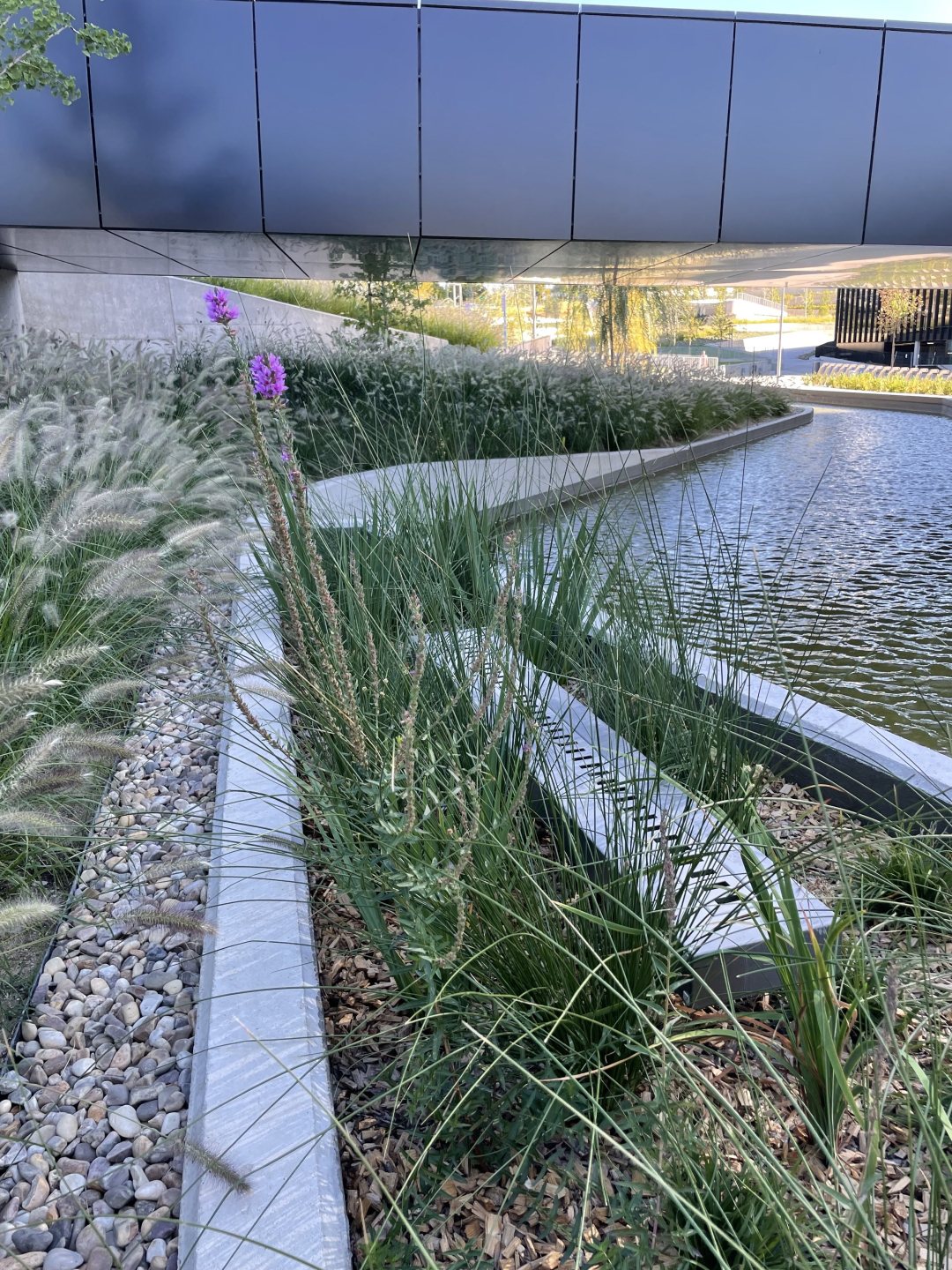

Madrid to supply city ponds and fountains with rainwater
In the city of Madrid, the solution will be installed in a city park for direct rainwater use to feed a pond, after purification with the BlueBloqs system and UV-LED disinfection. Due to the long dry periods, the collected rainwater is not always sufficient, so an alternative has been sought. Reclaimed water from the municipal water treatment plant offers a sustainable solution. Aside from rainwater, the LIFE GreenLED consortium will also use reclaimed water for high quality applications, so that there is sufficient water supply all year round. The solution will be implemented by the private-public partnership Junta de Compensación Urbanización del Este Los Ahijones, and operated by the City of Madrid. This will be the first pilot to subsequently supply all fountains in Madrid with rainwater.
Test, test, test
The pilot sites in Alphen aan de Rijn and Madrid will be continuously monitored by Delft University of Technology and the Polytechnic University of Madrid to evaluate the effectiveness of the solution. The project aims to prove that rainwater can be an alternative water supply to meet different user needs, complying with water quality and health regulations. The project team expects to be able to share the results of these pilots, so that other cities will follow.
According to Luuk Rietveld, professor of Drinking Water & Urban Water Cycle Technology at TU Delft, “by combining different techniques and knowledge from two universities, we can prove that there are healthy alternatives to the use of drinking water in public spaces.”




